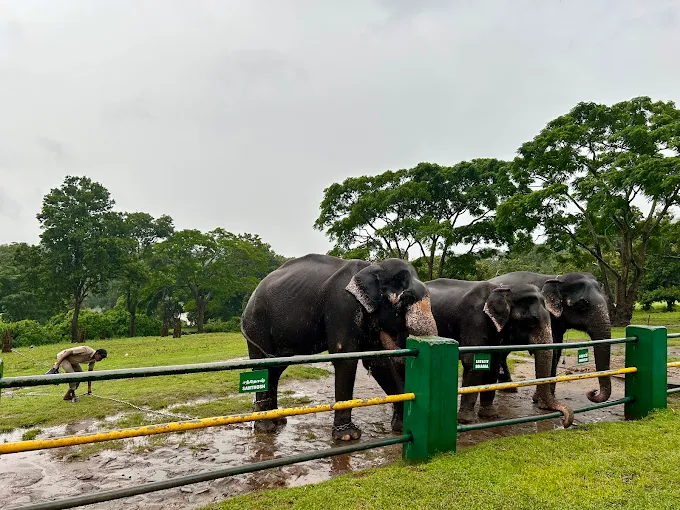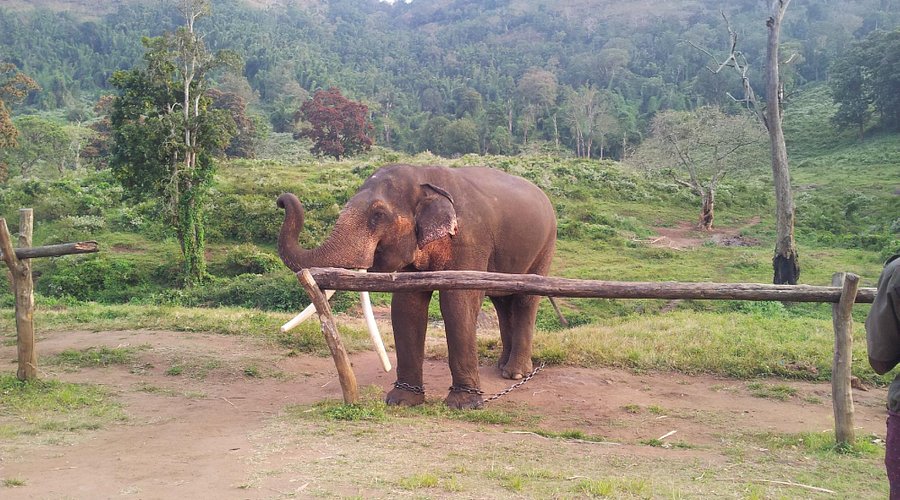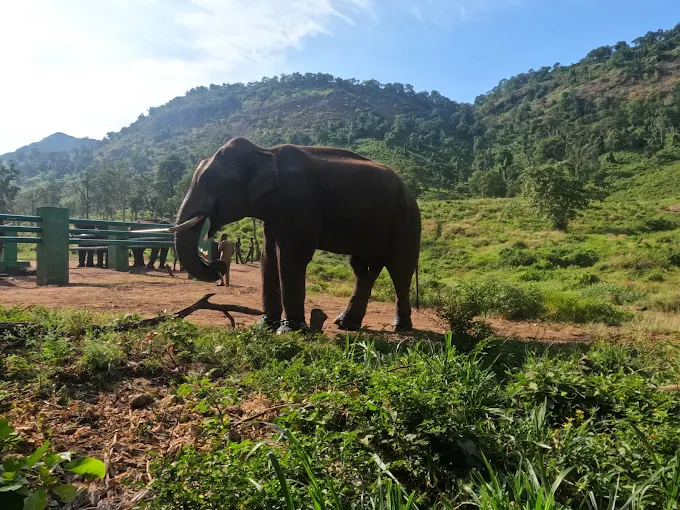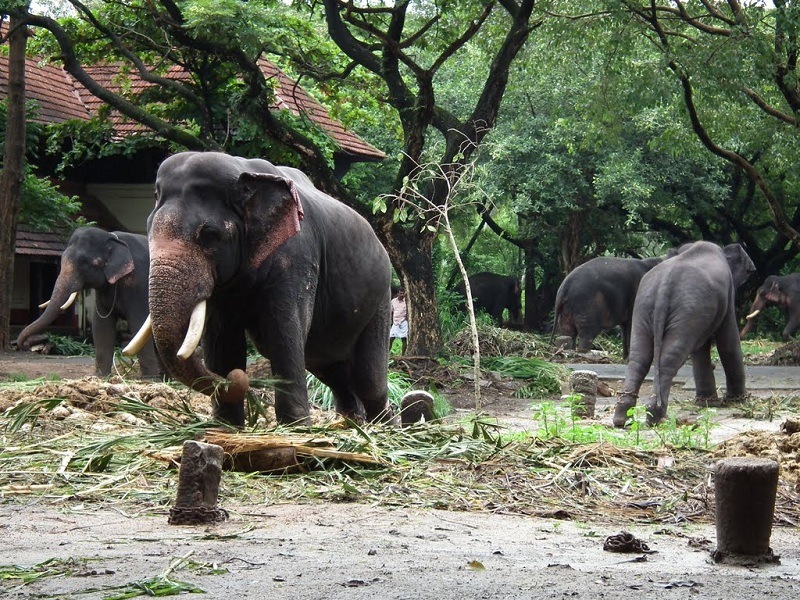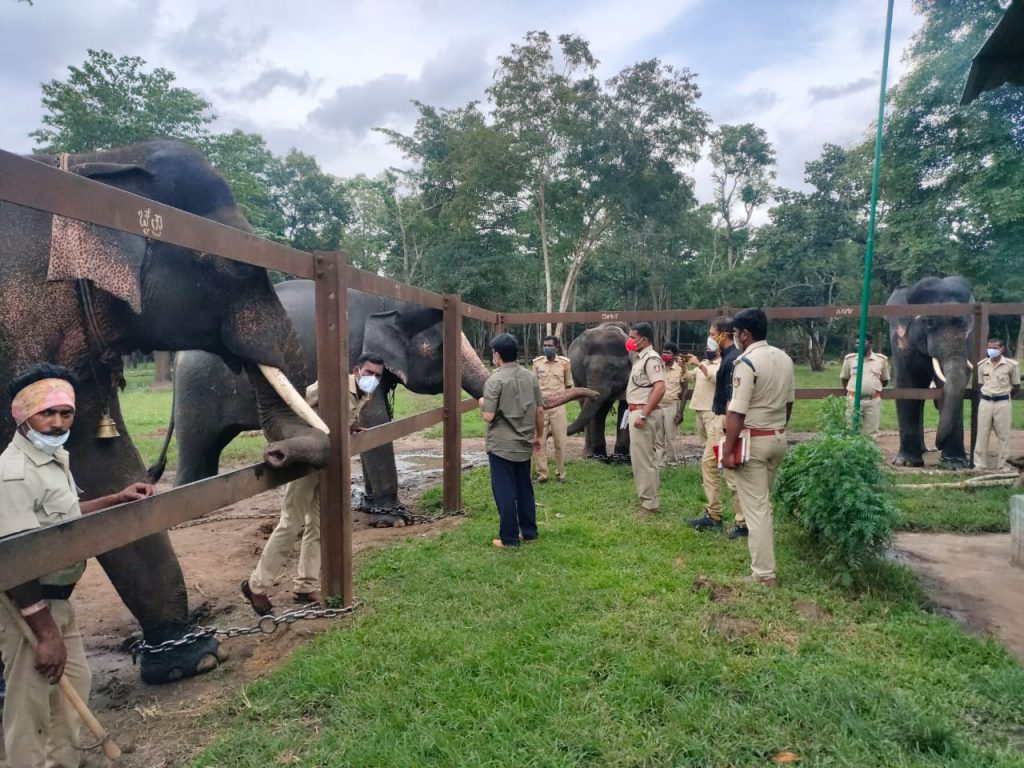Theppakadu Elephant Camp, established over a century ago in Mudumalai Tiger Reserve, Tamil Nadu, is among Asia’s oldest elephant camps. Located along the banks of the Moyar River, it serves as a centre for conservation, rehabilitation, forest patrol, and eco-tourism.
Why Visit Theppakadu Elephant Camp?
- Observe 25–28 camp elephants, including calves and retired working elephants.
- Learn about elephant care, feeding, and forest duties through guided interpretive sessions.
- Visit the newly built 'Mahout Village' for tribal mahouts and their families.
Location & How to Reach
- District: Nilgiris, Tamil Nadu
- Distance: Approx. 60–70 km from Ooty via Sigur Plateau
- Access Point: Thornilli or Theppakadu entry on Ooty–Gudalur highway
Timings
Feeding Sessions:
- Morning: 8:30 AM – 9:00 AM
- Evening: 5:30 PM – 6:00 PM
Visiting Hours: 8:00 AM to 6:00 PM (Best time: by 5:00 PM)
Daily Routine of Elephants
- 6:00–8:00 AM: Bathing in Moyar River near the bridge, managed by mahouts and kavadis
- 8:00–8:30 AM: Morning training (kumki, command training)
- 9:00 AM: Feeding – diet includes rice, jaggery, coconut, horse gram, salt, and minerals
- After breakfast, elephants go into the forest for grazing until evening
Camp Details & Special Elephants
- Oldest Elephant: "Anna" (67 years), a pensioner with no work duties
- Another Notable Elephant: "Magna", aged 27, known for strength and tusks
- Male elephants have large tusks, females have stub tusks (“nuni kombu”)
- At night, elephants graze in the forest and are tracked by bells and chains
Entry Fees & Booking
- Entry Fee: ₹25 per Indian visitor; ₹300 approx for foreign nationals
- Booking: Recommended via Mudumalai Tiger Reserve’s official portal or certified tour operators
- Note: Combine with safari packages for full experience
What to Expect
- Feeding & Bathing: Watch elephants being fed and bathed in the Moyar River
- Conservation Role: Learn how elephants aid forest patrol and human-animal conflict mitigation
- Tribal Heritage: Discover the bond between mahouts and elephants maintained over generations
Best Time to Visit
- October to March for peak wildlife activity and good weather
- Avoid June–September during monsoons due to limited access and forest alerts
Wildlife & Scenic Surroundings
- Situated in the Mudumalai–Sigur corridor
- Wildlife includes elephants, tigers, leopards, dholes, deer, and over 200 bird species
- Surrounded by lush forests, Moyar Gorge, and numerous watchpoints
Visitor Guidelines
- Parking: Available at reserve entry, not inside core zone
- Photography: Allowed during feeding, no flash
- Conduct: No touching or feeding elephants outside guided sessions
- Crowd Tip: Arrive by 4:30 PM for front-row view of feeding rituals
Nearby Attractions
| Attraction | Highlights |
|---|---|
| Moyar Gorge & Falls | Scenic viewpoints |
| Kargudi Watchtower | Early morning wildlife viewing |
| Ombetta Lake | Lakeside wildlife refuge |
| Kallatty Falls | Nearby forest waterfall |
| Mudumalai Safari Booking | From Theppakadu base |
Summary
- Location: Theppakadu, Mudumalai Tiger Reserve
- Main Experiences: Feeding, bathing, conservation education
- Unique Features: Oldest camp in Asia, Mahout Village
- Ideal For: Families, wildlife enthusiasts, responsible travellers
Theppakadu is more than a tourist site—it’s a living institution of India’s elephant legacy. A respectful, eye-opening experience awaits those who visit this incredible sanctuary nestled in the Western Ghats.
India | Tamilnadu | Nilgiris
